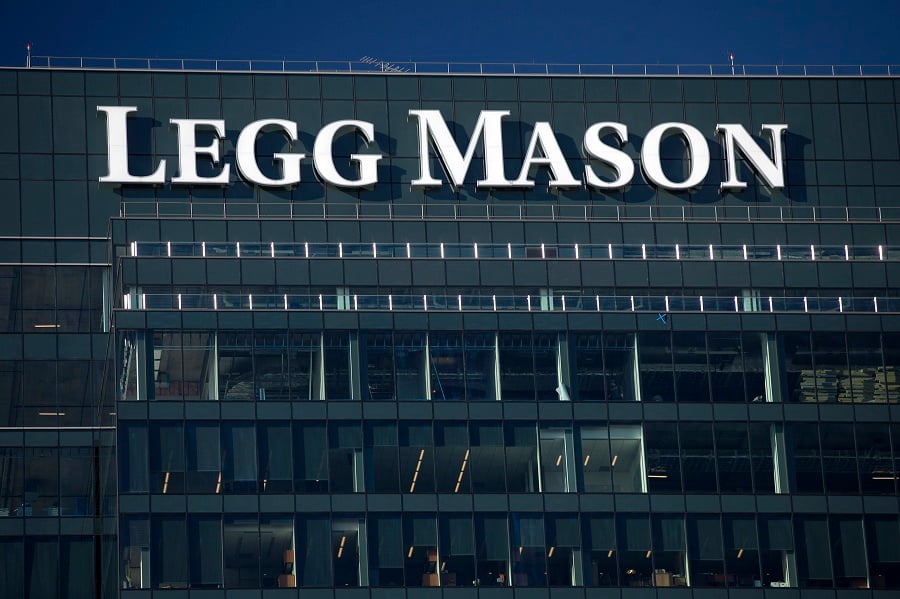

In the latest sign of the building enthusiasm behind the first launches of nontransparent exchange-traded funds, Legg Mason is tripling down on its bet that the unique and untested investment wrappers will be a smash hit with financial advisers.
The Baltimore-based asset manager, which has more than $803.5 billion under management but only $1.6 billion in ETFs, plans to more than triple, to 75%, its ownership stake in Precidian Investments, a company on the leading edge of licensing nontransparent ETFs.
Precidian, which is already 19.9% owned by Legg Mason, is one of five firms that have received regulatory approval to license technology that supports the nontransparent nature and structure of ETFs that would not be required to provide a live look at their underlying holdings.
Precidian, which received approval from the Securities and Exchange Commission early last summer, has already signed 14 licensing agreements with ETF providers that want to use the technology.
The four other firms, which gained regulatory approval later in the year, are T. Rowe Price, Fidelity Investments, Blue Tractor Group and a partnership between Natixis and the New York Stock Exchange.
While the market now waits for the SEC to approve the actual ETFs that have signed on to license the technology to make the nontransparent wrappers possible, Legg Mason has made clear it is bullish on the product.
“We notified Precidian last week of our intent to exercise our option to acquire a majority stake in the company and we will be working very closely with them to continue the build-out of this important capability for our industry,” Legg Mason Chief Executive Joe Sullivan said during a Jan. 29 earnings call with analysts.
A Legg Mason spokesman confirmed that the due diligence process is underway on acquiring a majority stake in Precidian and that the process could take up to nine months.
The ETF industry, including industry analysts, expected that the first nontransparent ETFs would be on market by now. In fact, it was widely rumored that at least one launch would be to announced last month at the annual InsideETF conference.
Now the market is adjusting its expectations for a launch before the end of the first quarter, according to Todd Rosenbluth, director of mutual fund and ETF research at CFRA.
“They’ve got the regulatory approval for the structure to exist and be supportive of ETFs, but the ETFs themselves have not yet been approved yet,” Mr. Rosenthal said. “Many people had hoped they would be live by now.”
The regulatory tug-of-war surrounding nontransparent ETFs goes back nearly a decade. The new type of ETFs is now seen as a potential savior for actively managed strategies that are still largely relegated to mutual fund wrappers that only trade once a day and are generally less tax-efficient than ETFs.
But with no products yet on the market, there’s no way of knowing what kind of demand there will be from financial advisers, the largest user of ETFs.
Kenneth Nuttall, director of financial planning at BlackDiamond Wealth Management, is among those advisers waiting to invest.
“There are many fine mutual-fund-only clients who would benefit from going into an ETF wrapper,” Mr. Nuttall said. “Clients are not worried about transparency because current mutual funds only report quarterly, anyway.”
However, there could be some stumbling blocks to getting most advisers on board for a product that generally does more for the asset managers than it does for investors, who might not notice or care about the distinctions of the new wrapper.
According to a Cerulli Associates’ survey of financial advisers last summer, 31% said they would not use nontransparent ETFs, while 35% said usage would depend on details of the structure.
Meanwhile, 15% of adviser respondents said they anticipate using the new products within the first year after they’re launched, and 18% anticipate using them within the first three years.
That level of interest is apparently enough for Legg Mason, Mr. Rosenbluth said.
“Legg Mason has a small presence in the index ETF world and in the fully transparent ETF world,” he said. “But this is a sign of confidence from them that there will be demand for active ETFs and that Precidian-based products will be the first ones out of the gate.”

Relationships are key to our business but advisors are often slow to engage in specific activities designed to foster them.

Whichever path you go down, act now while you're still in control.

Pro-bitcoin professionals, however, say the cryptocurrency has ushered in change.

“LPL has evolved significantly over the last decade and still wants to scale up,” says one industry executive.

Survey findings from the Nationwide Retirement Institute offers pearls of planning wisdom from 60- to 65-year-olds, as well as insights into concerns.
Streamline your outreach with Aidentified's AI-driven solutions
This season’s market volatility: Positioning for rate relief, income growth and the AI rebound
